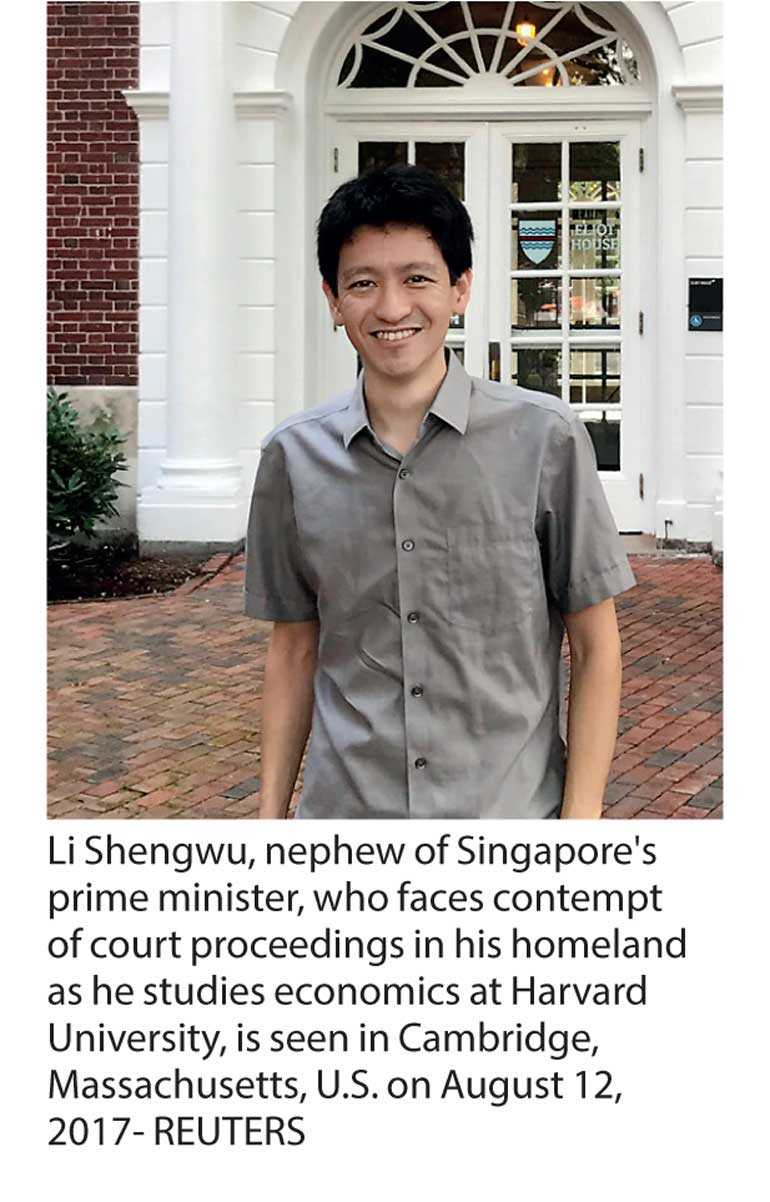Wednesday Feb 25, 2026
Wednesday Feb 25, 2026
Wednesday, 5 September 2018 00:00 - - {{hitsCtrl.values.hits}}
 SINGAPORE (Reuters): The Singapore Court of Appeal on Monday ruled that the prime minister’s nephew, Li Shengwu, can contest a government move to serve him court papers in the United States, a potential setback for the prosecution’s high-profile contempt of court case against him.
SINGAPORE (Reuters): The Singapore Court of Appeal on Monday ruled that the prime minister’s nephew, Li Shengwu, can contest a government move to serve him court papers in the United States, a potential setback for the prosecution’s high-profile contempt of court case against him.
Singapore’s attorney general’s office began proceedings against Li, an assistant professor at Harvard University, last year over a Facebook post in which he said the Singapore government is “very litigious and has a pliant court system”.
Li has argued that the Attorney General’s Chambers (AGC) was wrong to serve him court documents outside Singapore, a technicality that could further delay and potentially halt the prosecution’s case against him.
The Court of Appeal threw out an earlier ruling that denied Li the chance to argue that a court order that allowed Singaporean authorities to serve him papers in Massachusetts late last year was improper.
The ruling could give Li’s legal team the chance to suspend the contempt of court proceedings, “unless they find a way to re-serve” the papers, his lawyer, Abraham Vergis of Providence Law, told Reuters after the hearing.
Li has told Reuters previously he had no intention of going back to Singapore and that he had a happy life and a fulfilling career in the United States.
He left Singapore in July last year and his Facebook post came amid a bitter public feud among the children of the city state’s founding father, Lee Kuan Yew, including the current prime minister.
Li’s father, Lee Hsien Yang, and his aunt have accused their older brother, Prime Minister Lee Hsien Loong, of going against their father’s wish to have the family house demolished and trying to use it for political gains.
The attorney general’s office did not comment after the hearing.
The presiding judge, Chief Justice Sundaresh Menon of Singapore, said: “We will give direction for the appeal to be expedited.
“It shouldn’t be left hanging,” Menon said.
In a Facebook post on Tuesday, Lee Hsien Yang said the court decision “vindicates our belief that Shengwu has raised serious issues that need proper consideration”.
“The Court of Appeal will have the opportunity in open court to consider - for the first time - whether Singapore courts have jurisdiction outside the country in the circumstances of his case,” he said.
In 2016, Singapore parliament passed a bill that made it punishable by up to three years in prison or a fine of up to S$ 100,000 ($ 73,530) for anyone who alleges the judiciary is biased.